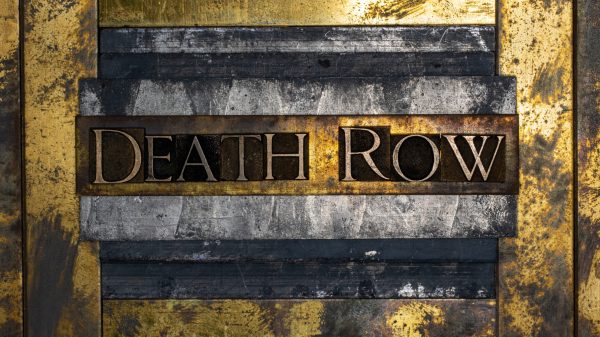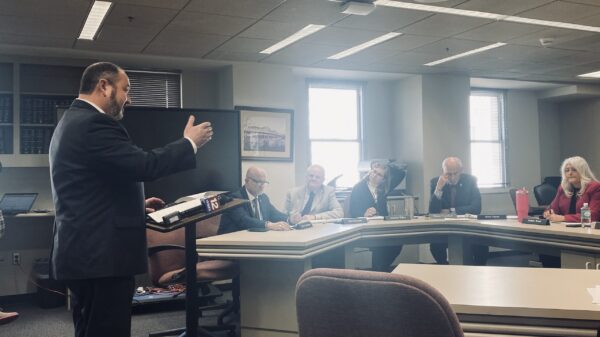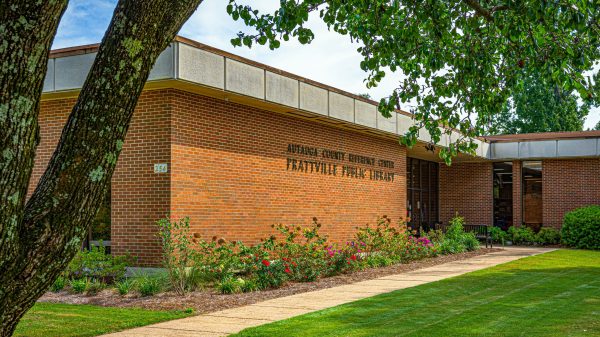By Bill Britt
Alabama Political Reporter
The twice elected Alabama Supreme Court Chief Justice Roy Moore faces removal from the bench, after ethics charges were filed against him by the appointed State’s Judiciary Inquiry Commission (JIC). Justice Moore will be tried by the Court of Judiciary, which is also appointed, and will be prosecuted by a private attorney paid for by JIC.
Judges in Alabama are elected by the people. In 2012, Moore was reelected as Chief Justice of the State Supreme Court, even though he was removed from that office nearly a decade ago.
The JIC, as it is know in legal circles, is an appointed commission, comprised of elected judges, lawyers and private citizens. The commission acts much like a Grand Jury. It hears evidence against the accused and then decides if there is probable cause to indict.
Ralph Malone, Charles David Scott and Dr. David Thrasher are private citizens who were appointed to the commission by Gov. Robert Bentley. Scott is an Opelika businessman, whose family has close ties to Speaker Mike Hubbard, who is currently facing trial on 23 counts of felony public corruption.
Attorneys Augusta Dowd and Billy C. Bedsole serve on the commission, and were appointed by the State Bar Association. For the past three years, Ms. Dowd has represented Hubbard as part of his criminal defense team.
Judge David Kimberley and Judge Randall Cole were selected by Circuit Judges’ Association to sit on the commission.
District Judge Judge Kim J. Chaney, was appointed by Gov. Robert Bentley in 2012, and Judge Craig Pittman, who was selected by the State Supreme Court, also sits on the State Court of Civil Appeals. Pittman has received over a million dollars in campaign contributions for the Business Council of Alabama (BCA), which is closely allied with Riley and Hubbard.
The Executive Director is Jenny M. Garrett, and Rosa H. Davis is the commission’s lawyer.
The JIC rules in secret, with almost unlimited autonomy. So secret is the commission, that its website gives only a phone number and an address. Questions to the commission, even about who sits on the panel, are referred to the Secretary of State’s Office.
The Alabama Political Reporter found that some of the appointment dates for JIC members were improperly filed by the commission, as appointments made by Riley. When the Alabama Political Reporter made this error known to Secretary of State John Merrill, he quickly set about correcting the error, and is now in the process of reviewing all board and commission appointments for inaccuracies.
This panel of appointed members has found probable cause that Justice Moore should be tried by the Court of the Judiciary. Using taxpayer dollars JIC will hire a private attorney of their choosing to prosecute Justice Moore. The last time Moore was prosecuted, then State’s Attorney General Bill Pryor served as prosecutor. This had been the custom until the Troy King administration. No one will speak about the split between the Attorney General’s Office and JIC. However, we have learned that current State’s Attorney General Luther Strange, had reached out to JIC when he was first elected, but his offer to resume their past relationship as prosecutors was rejected. When asked why the split and why it refused General’s Strange’s offer, the JIC told the Alabama Political Reporter they would not comment on the matter.
Justice Moore’s hearing will be preceded over by the Court of the Judiciary, another appointed body, which like JIC, is comprised of judges, lawyers and private citizens. That panel will serve as judge and jury.
Current members are Court of Criminal Appeals, Judge J. Michael Joiner, Circuit Judges James W. Woodroof, Jr., Laura Petro, District Judge Jeffrey T. Brock, two attorneys John V. Denson, II and S. Dagnal Rowe, Sr., plus three private citizens L. Gwaltney McCollum, Jr., Lucinda Samford Cannon and Daryl O. Perkins.
If convicted, Justice Moore may be removed, or sanctioned. He also has a right to appeal any conviction to the State Supreme Court.






















































